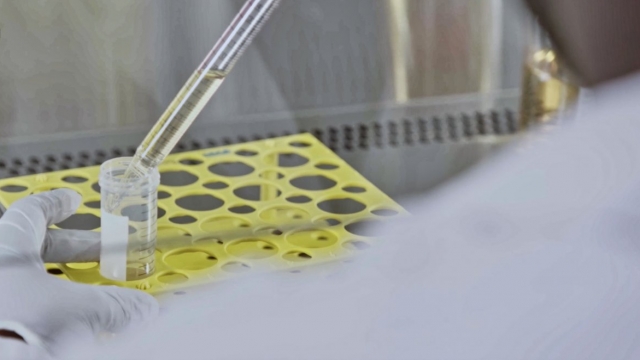Standing in the kitchen of her Hudson, New Hampshire, home, Marguerite Thibeau carefully assembles all of the ingredients to make ice cream from scratch.
Cooking is one of her joys in life, but in the last few years it's a joy that's been taken away from her, after being diagnosed with an incredibly rare disease called Myasthenia gravis, or MG.
"I've always loved to bake, [ I can't ] do that much anymore," Thibeau said.
Myasthenia gravis is a rare neurological disease that only impacts 150 out of every 1 million people in the U.S. It causes severe muscle weakness.
For Thibeau, 76, the disease took away her ability to chew, swallow, and even speak at times.
"The doctors didn't know a lot about it. They knew it could be a deadly muscular disease," the grandmother from New Hampshire explained.
For others, like Glenda Thomas, MG has meant years of her eyelids not opening and severe neck issues.
SEE MORE: Promising gene therapy delivers treatment directly to brain
"You find yourself compromising trying to do daily living, getting dressed, trying to do your hair," Thomas said about living with MG.
But for those suffering from this incredibly rare disease, some hope is on the horizon.
Dr. Pushpa Narayanaswami is an Associate Professor of Neurology at Harvard Medical School and has spent years studying MG. She also treats patients with the disease at Massachusetts General Hospital.
"Many of these patients have been through long, arduous journeys not knowing what they have, suffering with symptoms they don't understand, and that can be scary," Dr. Narayanaswami said.
In the last few years, the FDA has started giving approval to more drugs that can treat the disease, including one called VYVGART, which slows muscle weakness. Right now, it has to be administered by a doctor.
"This is an incredibly exciting time with new therapies," Dr. Narayanaswami said.
According to the National Institutes of Health, there are roughly 7,000 rare diseases impacting between 25 million and 30 million Americans.
Trending stories at Scrippsnews.com




